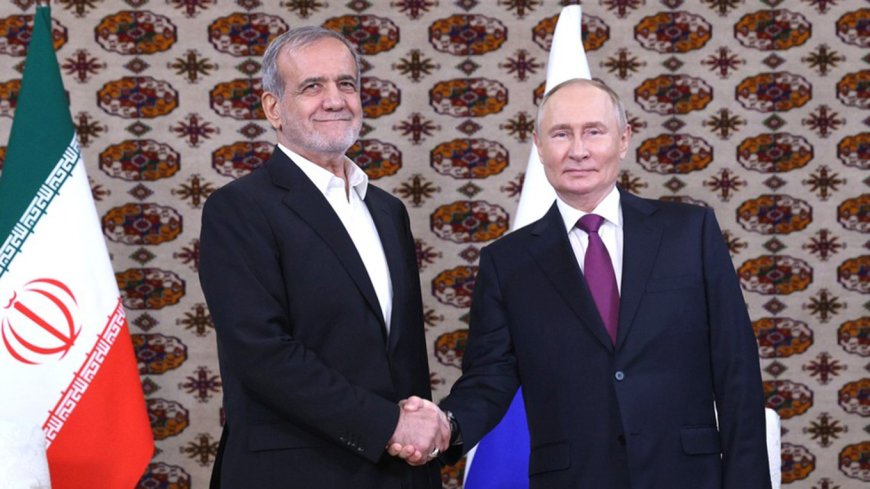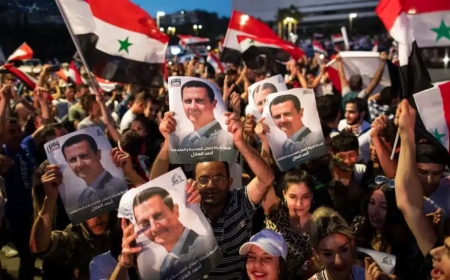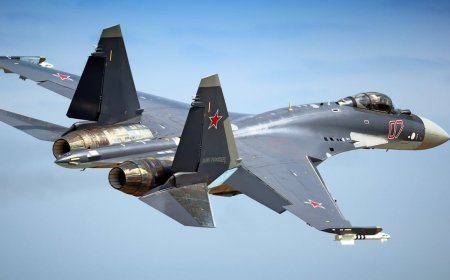Russia and Iran: Strengthening Strategic Alliance Amid Rising Global Tensions?

By: A. Yeganeh
The geopolitical landscape of the Middle East has once again brought the strategic relationship between Russia and Iran to the fore following a high-level meeting between their presidents during the Central Asian summit in Turkmenistan.
This gathering emblematic of Iran’s renewed regionalism is not merely a diplomatic formality but a profound expression of the growing synergy between two nations increasingly besieged by Western antagonism. As Russia navigates the complexities of the ongoing Ukraine conflict under the weight of severe Western sanctions and Iran stands firm against the Israeli regime in the turbulent heart of the Middle East the convergence of their interests and challenges has never been clearer. The timing of this meeting and the subsequent invitation extended by Moscow to Tehran for a state visit offer significant insight into the future trajectory of these two powers in an era defined by shifting alliances and shared opposition to Western hegemony.
Convergence of Interests Amid Common Threats
In recent years both Russia and Iran have had to recalibrate their foreign policy objectives in the face of mounting external pressures notably from the United States and its European allies. While historically their strategic goals were not always aligned the convergence of threats has forged deeper more pragmatic cooperation between these two nations. Western-imposed sanctions coupled with aggressive military postures have effectively pushed Moscow and Tehran into closer collaboration.
Two key arenas of conflict—the ongoing war in Ukraine, the simmering tensions in Nagorno-Karabakh and relentless Israeli aggression against the Gaza Strip—illustrate this burgeoning alliance. Russia’s logistical and military support for Iran amid heightened tensions with the Israeli regime is not an isolated act but part of a broader reciprocal arrangement. Iranian military technology including drones and other defense systems has proven instrumental in bolstering Russian forces in Ukraine. These shared struggles have not only drawn the two nations closer but have underscored a mutual reliance that transcends immediate tactical gains pointing towards a long-term strategic partnership.
The Rise of an Eastern Bloc
As Western powers continue to delineate the global order along binary lines of allies and adversaries the nations of the East particularly Iran Russia and China have moved decisively towards strengthening their own multilateral frameworks. The upcoming formalization of strategic agreements between these three powers represents a significant counterbalance to the West’s increasingly unilateral interventions.
This evolving "Eastern Axis" is not merely a reactionary coalition but a proactive effort to reshape the global order where the interconnectedness of economic military and political interests is viewed as a path towards mutual benefit. The shared perception of existential threats posed by the U.S. and its European partners has galvanized these nations to pursue deeper cooperation. Russia and Iran in particular are poised to play pivotal roles in this emerging bloc using their respective geopolitical influence to challenge Western-dominated narratives and policies on the international stage.
U.S. Elections and Global Repercussions
The upcoming U.S. elections represent a pivotal moment for the global community particularly for Russia and Iran whose relations with Washington have been fraught with tension. Whether a Democrat or Republican assumes office the geopolitical implications for these two nations will be profound. The reconfiguration of U.S. foreign policy priorities especially in relation to the Middle East and Eastern Europe could alter the trajectory of both the Ukraine conflict and the growing hostilities between Iran and the Israeli regime.
In this context the invitation extended by Moscow to Iran’s president is particularly significant. It offers an opportunity for both countries to preemptively strategize for the inevitable shifts in US foreign policy post-election. Whether the next administration takes a more hawkish or conciliatory approach Tehran and Moscow are keenly aware that their bilateral relationship will be instrumental in navigating the turbulence of the coming years. By deepening their ties now Russia and Iran are positioning themselves to better weather any storm that may arise from Washington’s corridors of power.
Expanding Cooperation Beyond Military and Security
While military and security cooperation between Russia and Iran often dominate headlines it would be a mistake to view their relationship through a purely martial lens. The economic dimension of their partnership especially in light of the crippling sanctions imposed by the West is equally vital. Both nations have been systematically cut off from global financial systems and markets creating a powerful incentive to explore joint ventures in areas such as energy trade and technology.
Iran’s reliability as a steadfast ally has been demonstrated time and again most notably in its unwavering support for Russia during the Ukraine conflict. Similarly Moscow’s provision of military aid to Tehran in recent weeks underscores the reciprocal nature of this partnership. This mutual trust extends beyond immediate tactical concerns it reflects a shared understanding that the economic survival and growth of both nations depend on their ability to circumvent Western economic strangulation through increased bilateral cooperation.
Conclusion: A Unified Eastern Strategy?
The strengthened relationship between Iran and Russia set against the backdrop of rising tensions with the Israeli regime and an uncertain global landscape is emblematic of a broader Eastern strategy. In fact the emerging Eastern Axis bolstered by the strategic partnership between Tehran and Moscow is poised to play a central role in shaping the future of international geopolitics.
In conclusion the recent invitation extended by Russia to Iran’s president is more than a mere diplomatic gesture. It is a clear indication of the deepening ties between two nations united by common threats shared interests and a vision of a multipolar world. As the U.S. elections loom and global tensions escalate the Russia-Iran partnership will undoubtedly play a pivotal role in the unfolding geopolitical drama.













































